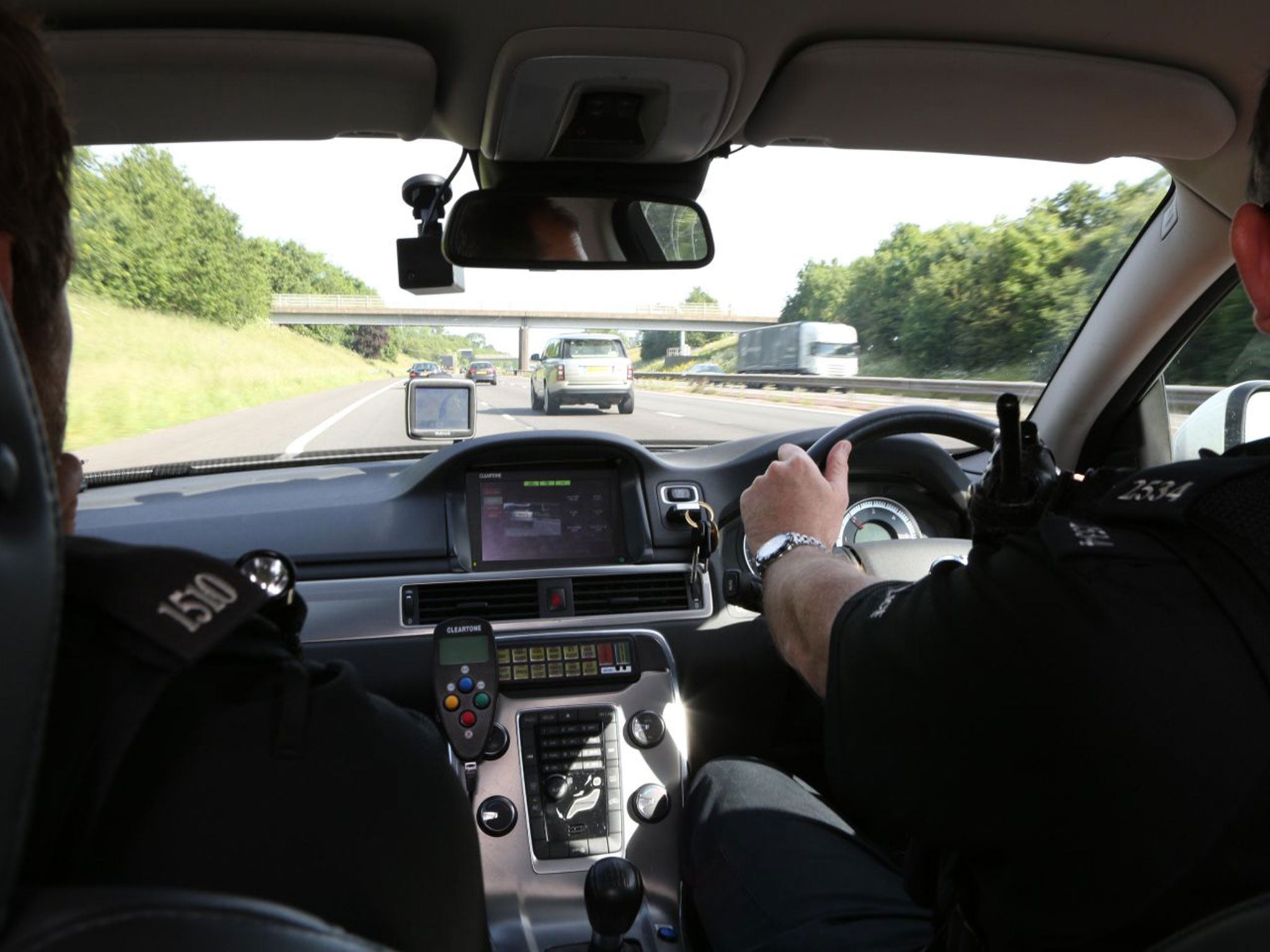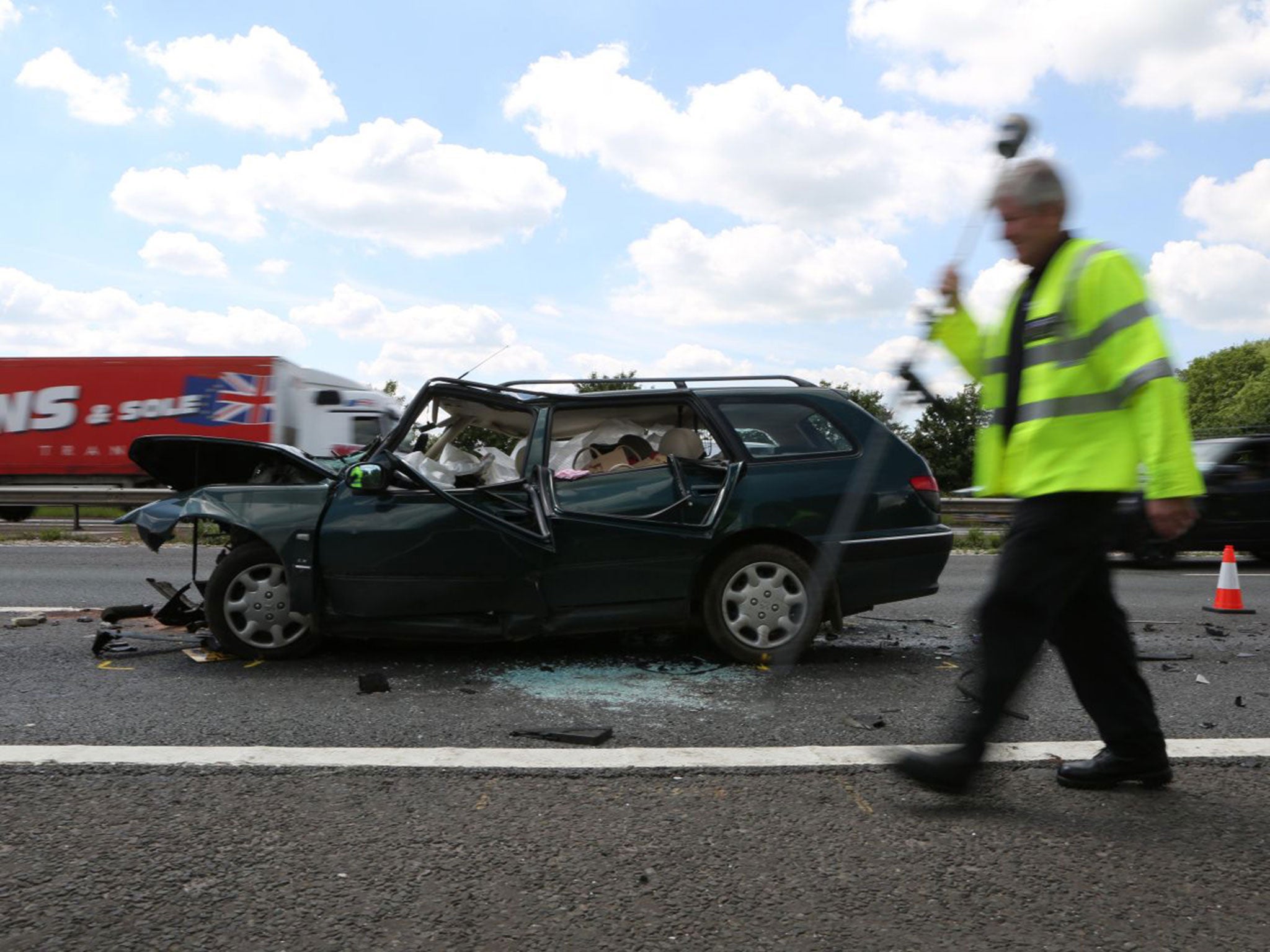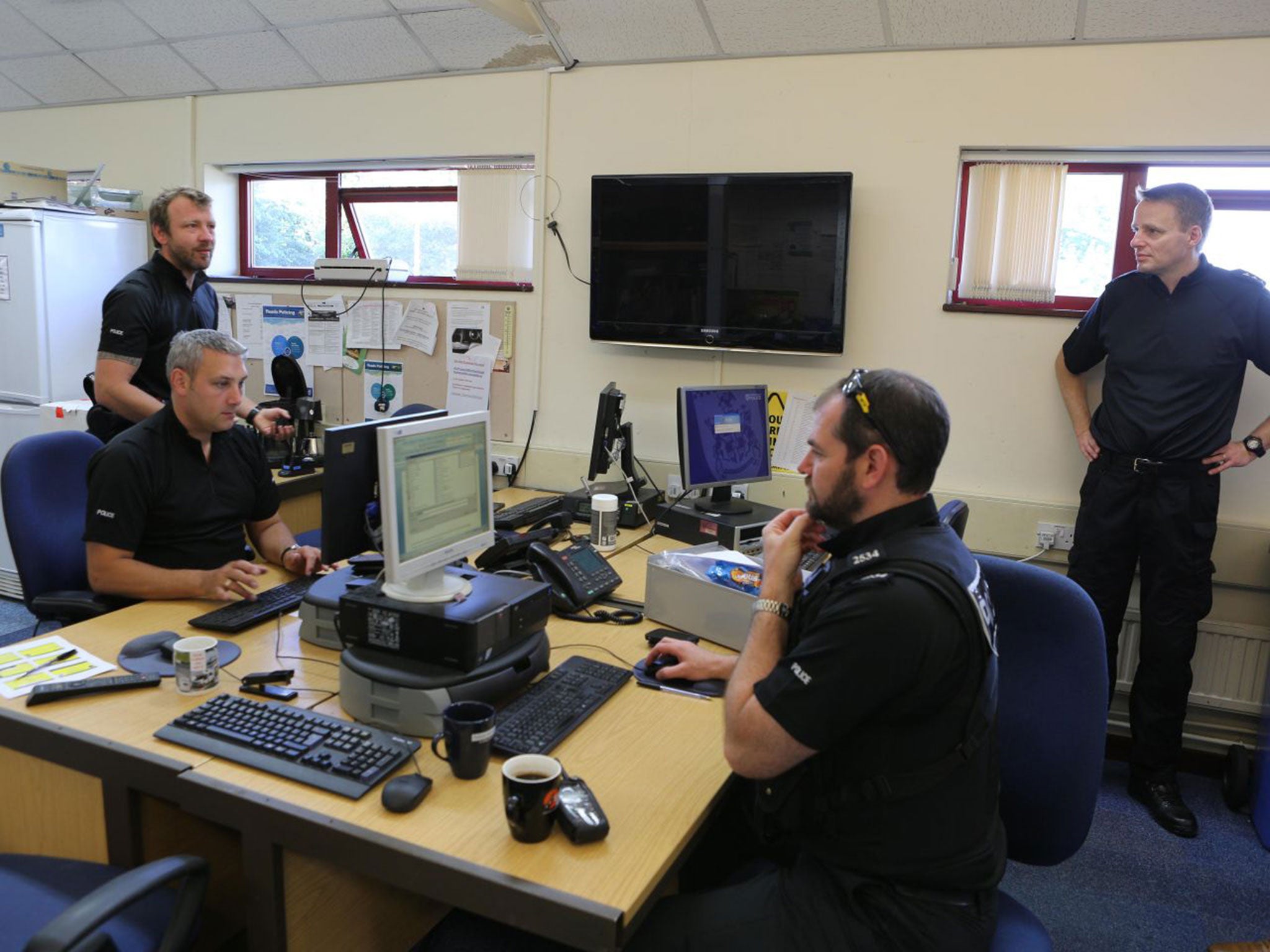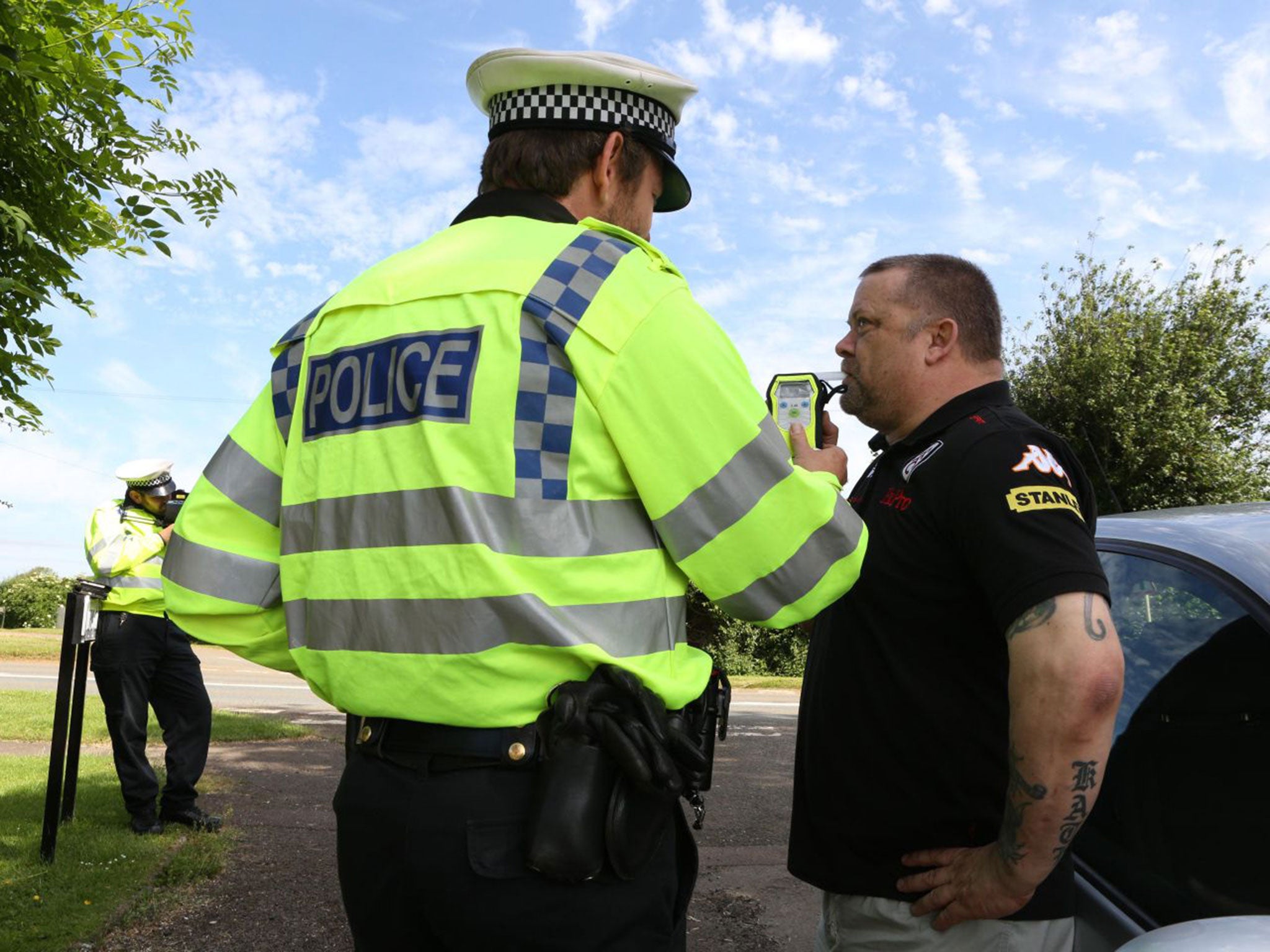The Government has announced plans to quadruple speeding fines on the motorway - but will they have the desired effect?
During a ride-along with a police patrol on the M40, Jamie Merrill found those in the frontline sceptical about the move

At the wheel is roads policing officer PC Wayne Mills. He has his foot down and is weaving in and out of traffic as his partner, PC Charlie Etheridge, checks the radio for an update on the accident we are speeding towards. "It's a fatal [accident], involving a female and a two-week-old baby girl on the southbound carriageway. The female is deceased and the condition of the baby is unknown," he says in staccato fashion, struggling to stay steady as we accelerate on to the M40 motorway in Oxfordshire.
It's what the two officers call an "impactive job", their code for a gruesome one, which explains why PC Mills pushes the police Volvo to 130mph and a helicopter ambulance is racing across the sky ahead of us to the crash site.
I'm on a "ride-along" with a patrol from Thames Valley Police's traffic unit in the week the Government announced new plans to quadruple the maximum fine for speeding on the motorway from £2,500 to a massive £10,000.
The moves come only a year after the Government floated the idea of an increased speed limited but will, according to the Justice minister, Jeremy Wright, give "magistrates the flexibility to suitably punish those who damage society … by driving at excessive speeds".
Until now the shift has been routine, with the officers issuing tickets to speeding drivers and giving advice; this "job" means that we won't be hunting motorway speeders, though, but investigating a death.

At the crash site the officers help "bring order to the chaos". They join the crews of four other police vehicles, two ambulances, a Highways Agency patrol and two fire engines to close the motorway, evacuate the young child and embark on the grisly task of cutting the remains of her mother from the wreckage.
The victim's car was left nearly unrecognisable. A tiny item of pink clothing hangs over a battered door and a buggy sits against the rear windscreen. The child is unharmed, but it's not clear why her mother's car went across three lanes of traffic and smashed at high speed into the rear of a heavy goods lorry.
What is clear is the tragic aftermath is manpower intensive – it's the second fatal crash of the day in the area – and that PCs Mills and Etheridge are at the front line of Britain's shrinking traffic police. In fact they are part of a cadre of officers now less than 5,000-strong – having shrunk 29 per cent in the past decade, according to the Home Office.
Before the crash, at the officers' base at Bicester, Chief Inspector Henry Parsons wanted to focus on danger hotspots and target areas rather than new fines: "There would need to be aggravating circumstance for a fine as large as £10,000. Most of what we do isn't focused on motorways, it's not where the majority of incidents occur," he said.
"And there's never been a war on motorists as far as we're concerned," he added, referring to the Conservative promise to end the so-called attack on drivers under the previous government. "Our job isn't about generating tax or fines, we're here to reduce the number of deaths and serious injuries on the roads."
For him that means his unit tackling what he calls the fatal four of crashes: speed, seat belts, mobile phones and drink-driving. He's less detailed about the numbers he has available to police the law on these, but admits they have declined in recent years. Co-operation with the neighbouring Hampshire force, however, has allowed Thames Valley to retain its specialist traffic unit, leaving it in a better position than some smaller forces. "I'd like more resources, but it's public money I'm spending and I think we've struck the right balance," he said.

His patrol officers were franker. PC Mills said the new fines sound like "more idle government threats that won't be enforced by magistrates". Both he and PC Etheridge would choose compulsory identity cards to confirm driver identities, and better-quality equipment, over greater fines.
Outside the police there are more doubting voices. Liberal Democrat MP Julian Huppert, a long-time road safety campaigner, said: "Of course police should have the tools at their disposal, including fines, but there should also be enough of them to do the job."
Road safety campaigners are also concerned at the focus on new fines over police numbers. Gary Rae, a campaigner for Brake, welcomed the increased fines but said: "Traffic policing and enforcement activities should always be a priority."
Neil Greig at the Institute of Advanced Motorists, defines part of the problem: "Home Office guidelines do not place traffic enforcement in the top tier of police priorities."

Transport Department figures show the number of people killed and seriously injured on the roads is decreasing. But the picture is a complex one, according to Mr Greig, as police prosecutions are also falling. "Looking at the statistics it's easy to see how the coalition can argue there's not a big road safety issue problem," he said. "But there may be a variety of reasons for this: the recession and the cost of fuel has slowed drivers down and we have fewer 17-year-olds."
Back on the M40, the police have efficiently reopened the road within three hours, identified the dead woman and dispatched a family liaison officer to break the life-changing news to the next of kin. "
"This is part of the job that Theresa May doesn't get to see," said PC Mills. "For once, I'd like to see a politician come and see this."
Join our commenting forum
Join thought-provoking conversations, follow other Independent readers and see their replies
Comments
Bookmark popover
Removed from bookmarks